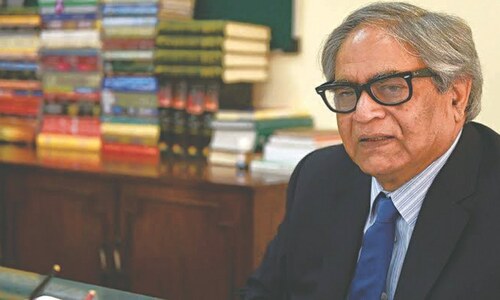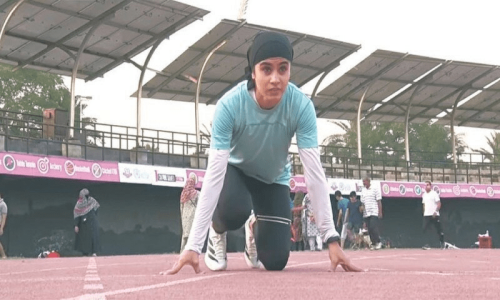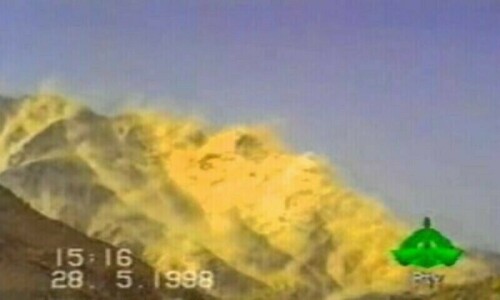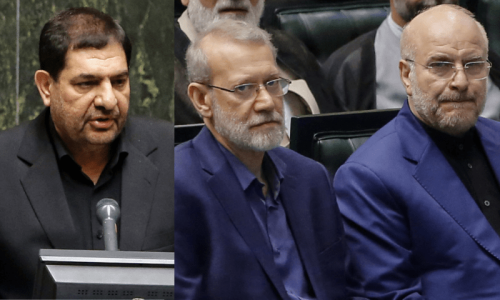DEAN of Social Sciences and Arts at Shah Abdul Latif University, Khairpur, Dr Yousuf Khushk, and chairperson of the Urdu department, Dr Sufia Yousuf, welcomed 63 scholars from 14 countries to the university’s international conference on ‘Literature, Society and Reconstruction’. The husband and wife team, besides reading papers at the conference, ensured that the participants were well looked after and their stay in Khairpur pleasant.
Dr Khushk (author of five books, 45 research papers, and editor of Almas, an Urdu journal) discusses the objectives of the conference and the challenges of establishing a Euro-Asia language and literature institution in a conversation with Books&Authors.
Qs) What were the objectives of this conference?
Other than the role a literary writer has to think about in these challenging times, we were hoping to achieve two other objectives. One is that scholars become aware of literary trends and research methods in other countries. The other is that they collaborate with each other on research projects that open new vistas in literature.
Qs) How did the idea of arranging a moot on literature germinate?
While I was studying for my post-doctorate degree at Heidelberg University, Germany, in 2006, I saw that conferences, seminars and talks would take place every other day. If a professor from a foreign country dropped by for a casual visit, he or she would be asked to give a talk to the students. And the next day posters would go up announcing the date of the talk or seminar. This made a strong impression on me. In 2007, I returned and joined SALU. It took me about a year to put together the first conference. With the support of then vice chancellor, Dr Nilofar Sheikh, we organised one on literature and national identity in 2008. The aim was to understand how various nations view their literature and the role of literary writers in this context. Scholars from seven countries, including India, Japan, Turkey, UK, Spain and Germany attended the conference. The Higher Education Commission (HEC) gave us a grant of Rs800,000.
Qs) Tell us about the second international conference.
The next one took place after a gap of four years, in 2012. We were given a grant of around Rs14,00,000 by the HEC and hence were able to invite more scholars. This time around we broadened the canvas and the topic was literature and coexistence.
Qs) What have been the challenges of organising these conferences?
Funding is the biggest one. For instance, this time round, HEC reduced the grant and we were given around Rs10,00,000 and seven international airline tickets. I had to request scholars from Pakistan to undertake long bus journeys to make it to the conference. We did fund their bus tickets but the journeys were time consuming, especially for those coming all the way from AJK and Peshawar.
Another challenge is that not too many scholars are conducting literary research. Thus, often during conferences one hears discussions on similar topics or repetition of old work. We also want to establish a Euro-Asian institution that can work on issues of language and literature, or a world literature centre.
In addition, we want to highlight that many Urdu chairs in different countries are lying vacant. It is very important that this is done so that an interest and love for Urdu is created in the youth of those countries.
Qs) Where are the Urdu chairs vacant, and why?
The Urdu chair of Tehran University has been vacant for the last five years. Two chairs in Egypt, one in Al Azhar University and the other in Ain Shams University, are empty. Similarly, two chairs in Turkey and one each in Kazakhstan and in Nepal.
They are vacant because education has devolved under the 18th Amendment and there is no federal education ministry that could appoint scholars for these positions. It is still unclear whose responsibility it is to appoint people. I think it is best that the HEC carries out the responsibility.
Qs) Has the theme for the next conference been decided?
Yes. We are planning to arrange one on children’s literature.
—















































Dear visitor, the comments section is undergoing an overhaul and will return soon.